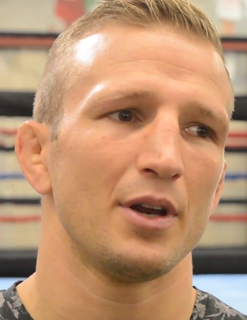A Quote by Daniel Goleman
We learn best with focused attention. As we focus on what we're learning, the brain maps that information on what we already know making new neural connections
Quote Topics
Related Quotes
The key to transforming mental models is to interrupt the automatic responses that are driven by the old model and respond differently based on the new model. Each time you are able to do this, you are actually loosening the old circuit and creating new neural connections in your brain, often referred to as self-directed neuroplasticity.
We now know that we imprint information during the day. We sort of - that seed is planted there within the brain during the day. In other words, we learn information. But we also know that that vision that was planted in the brain still remains in the sound of silence, in this - in the dark of night.
There have been studies done on people who meditate and they have found that they actually have increased grey matter in certain parts of their brain and more neural conductivity, meaning more connections between certain parts of the brain. They have increased capacity for, in some cases, memory, or reasoning.

































